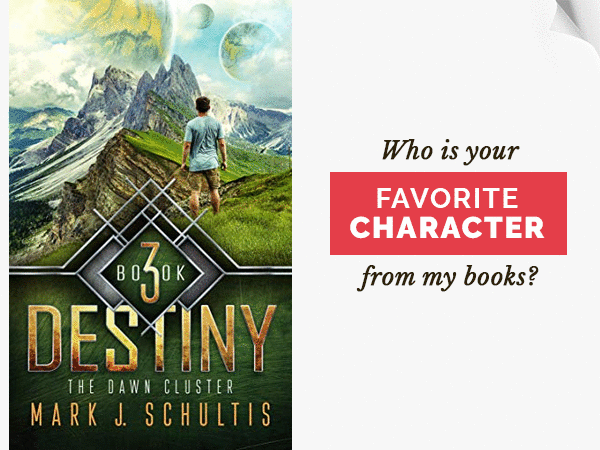Dune You See What I See?
I can only speak for myself, but social distancing hasn’t been all that hard. I’m naturally a hermit, preferring solitude and getting lost in media. Is that healthy, though? That’s a question I’ll answer at a different time, which is never. But in my dank cave, aka basement, I began sifting through my desk, in a piss poor attempt to better organize it. In doing so, I came across diskettes from my college years and lo and behold I came across my 2004 mid-term essay covering the first four Dune novels. Considering the recent release of stills from Dennis Villeneuve’s upcoming film adaptation of the first Dune novel, I saw this as a bit of irony.
As I read my thoughts, a few questions arose. 1.) How much of this was class regurgitation and how much of it was original? 2.) Was I perhaps more articulate than I am now, meaning I’m getting lazy in my maturity? 3.) Would anyone care to read this now?
I posit a theory, not an original one mind you, that Dune represents an example of wealthy leaders in power who have for generations strived to not only maintain that power, but also ensure that the formula for acquiring said power is vital to how society itself, and the core understanding of being human, continues. It struck me as being quite coherent and still relevant, so I figured I’d share it with you. Please keep in mind this was composed for college credit but did come from a love for the work.

SPOILERS for the first four Dune novels (Dune, Dune Messiah, Children of Dune, God Emperor of Dune):
Both Paul Atreides and his son Leto II, the protagonists of Frank Herbert’s Dune saga, stand as functions of an overall process of evolution in human thought. That process is the Golden Path, a journey that intends to return creativity and emergent thinking to a population that has completely forgotten what it is to think for oneself. Herbert’s free style approach allows the reader to share in more than one character’s thought processes and through this we see each character’s patterns of thought and likewise see the importance of why the Golden Path must be realized. It is Leto II, not Paul, that sees this path to fruition because he is able to surpass his father’s pattern of thought by shedding what both believe to be at stake – being human.
As I read my thoughts, a few questions arose. 1.) How much of this was class regurgitation and how much of it was original? 2.) Was I perhaps more articulate than I am now, meaning I’m getting lazy in my maturity? 3.) Would anyone care to read this now?
I posit a theory, not an original one mind you, that Dune represents an example of wealthy leaders in power who have for generations strived to not only maintain that power, but also ensure that the formula for acquiring said power is vital to how society itself, and the core understanding of being human, continues. It struck me as being quite coherent and still relevant, so I figured I’d share it with you. Please keep in mind this was composed for college credit but did come from a love for the work.

SPOILERS for the first four Dune novels (Dune, Dune Messiah, Children of Dune, God Emperor of Dune):
Both Paul Atreides and his son Leto II, the protagonists of Frank Herbert’s Dune saga, stand as functions of an overall process of evolution in human thought. That process is the Golden Path, a journey that intends to return creativity and emergent thinking to a population that has completely forgotten what it is to think for oneself. Herbert’s free style approach allows the reader to share in more than one character’s thought processes and through this we see each character’s patterns of thought and likewise see the importance of why the Golden Path must be realized. It is Leto II, not Paul, that sees this path to fruition because he is able to surpass his father’s pattern of thought by shedding what both believe to be at stake – being human.
Paul symbolizes a human who has become aware of historical thought, not fully understanding it and thus fearing it. His son embraces it. “Leto possessed two advantages: he had committed himself upon a path from which there was no turning back, and he had accepted the terrible consequences to himself. His father still hoped there was a way back and had made no final commitment.” (COD, pg. 344). To fully understand what the Golden Path is requires an acknowledgment of how we have come to define what it is to be human. ‘Humans’ are homo sapiens that exercise intelligence. Now, if intelligence is a natural force in the universe, then humans exhibit intelligence by thinking and each person’s thinking abilities are thus defined by their patterns of thought. Literature has come to be the material manifestation for recording patterns of thought throughout our history. Word choice and sentence structure are conscious decisions made by the author to reflect their pattern of thought and concept of being human, with each era having its own concept of what it is to be human. The author has power over the knowledge of the reader and those with power and knowledge can shape the society, especially through literature and historical texts. The reading of these examples can foster the idea of ‘normalcy’, prompting us to think alike so as to fit into the established society. Unlike intelligence, ‘society’ is not a force of nature - it is created by thinking humans to function as their interpretation of the world they live in. That means a society is organized by knowledge and memory, and so with shifts in power comes shifts in the organization of knowledge. Dune then becomes a possible future for human society because it is defined by a real, thinking human. Herbert depicts a homeostasis created by casualness and security, where humans have no memory of how the concept of ‘being human’ has changed. There is no knowledge because one cannot remember the last shift in power and that an organization of knowledge predated theirs, therefore incapacitating one’s ability to fathom the next shift. Leto’s reign calls for that shift.
“The Bene Gesserit believed they could predict the course of evolution. But they overlooked their own changes in the course of that evolution…I have no such reflexive blindness.” (COD pg. 405). In Dune, those in power have no desire to change its structure, therefore there are no shifts in the organization of knowledge. This power structure, from the emperor down to the houses, has enormous influence on its civilians, and this system is key in adding to the stagnation, a power through ritual and ideology that persuades people to see the universe through the eyes of the aristocrats. These aristocrats want to see their society remain as it is, and this system gives them an illusion of control over power and knowledge, creating the illusion that if they can manipulate capital interests, they can therefore manipulate the people.
Enter Paul Atreides, who tragically believes that if he assumes the emperor’s throne, he can make the changes needed to break the cycle, that his control over government and religion will not be an illusion, but as he comes to be the Kwisatz Haderach, (the one that is everywhere at once: past, present, and future), he sees the answer lies with the Golden Path. What the Golden Path would bring scares Paul because it would be an end to what he knows as ‘human’ and his pattern of thought defines his identity as a human as the sum of his memories. The Path would destroy all memories, and therefore end ‘identity’ as he knows it. As his reign ends, he sees the truth of the Path. “I succumbed to the lure of the oracle… And he sensed that succumbing to this lure might be to fix himself upon a single-track life. Could it be, he wondered, that the oracle didn’t tell the future? Could it be the oracle made the future?” (DM, pg. 47.)
Leto II, born with prescience, understands historical thought because, unlike his father, his memories don’t constitute his identity - he was born with the memories of all who have existed. He is the infinite mind. “Unless you understand that Time isn’t what it appears, I can’t even begin to explain. My father suspected it. He stood at the edge of realization, but fell back.” (COD, pgs. 98-99.) Leto proceeds to walk the Golden Path, shedding his ‘humanity’ by merging with sand trout, metamorphosing into a giant worm, proclaiming himself God Emperor, and like his father, using the population’s belief in him as a tool of manipulation, further enforcing the stagnation centuries of casualness and security had produced. This will eventually lead to the exhaustion of man’s desire to use their knowledge to reinvent ‘being human’ and instead begin anew. “The more curious I become, the less curious are those who worship me. Religion suppresses curiosity. What I do subtracts from the worshipper. Thus it is that eventually I will do nothing, giving it all back to frightened people who will find themselves on that day alone and forced to act for themselves.” (GEOD, pg. 198.) Leto, unlike his father, recognizes the necessity of the Golden Path and that the perception of what it is to be human is not finite, that to create a future, we must know a past. “We go forward, we go back.” (COD pg. 98.)





Comments
Post a Comment